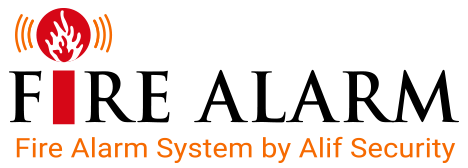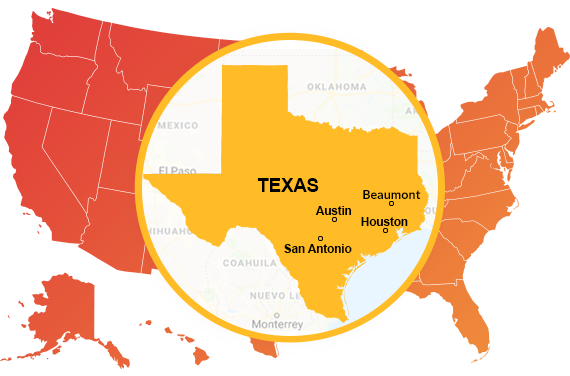Houston's Fire Code 101: What Every New Business Owner Must Know
Starting a new business in Houston is an exciting venture. While you're busy drafting business plans and designing your space, one critical area cannot be overlooked: complying with Houston's fire code. Understanding the new business fire code in Houston isn't just about avoiding fines—it's about protecting your investment, your employees, and your customers from devastating fire hazards.
Navigating these regulations can feel overwhelming, but it doesn’t have to be. This guide breaks down the essential fire code requirements you need to know to open your doors with confidence and ensure you are prepared, compliant, and safe from day one.

Why Fire Code Compliance is Non-Negotiable
The City of Houston enforces regulations based on the International Fire Code (IFC) and National Fire Protection Association (NFPA) standards, with specific local amendments. The Houston Fire Marshal's Office conducts inspections to ensure compliance, and failure to meet these standards can lead to severe consequences.
- Delayed Opening: You cannot legally operate without a Certificate of Occupancy (CO), and passing a fire marshal inspection is a mandatory part of the process.
- Costly Fines and Shutdowns: Non-compliance can result in significant financial penalties and even forced business closures.
- Increased Liability: In the event of a fire, failure to comply with the code could have devastating legal and insurance consequences.
- Protecting Lives: Most importantly, these codes are designed to prevent tragedy and save lives. A compliant business is a safer business for everyone.
Key Fire Code Requirements for Houston Businesses
While specific requirements depend on your business's size and occupancy type, here are the fundamental elements every new business owner must address.
Fire Protection Systems
Fire Alarms: Nearly all commercial businesses in Houston are required to have a fire alarm system. The specifics of the system depend on your building's size and occupancy load. These systems must be professionally installed, monitored 24/7 by a licensed company, and regularly tested and maintained.
Sprinkler Systems: Automatic sprinkler systems are required in many commercial buildings to control and extinguish fires. Installation and maintenance must be performed according to NFPA 13 and other local codes.
Fire Extinguishers: Every business must have the correct type and number of portable fire extinguishers.
- Type: Most areas require Class ABC extinguishers, while commercial kitchens require a Class K extinguisher.
- Placement:Extinguishers must be mounted in a visible and easily accessible location, with a travel distance of no more than 75 feet from any point.
- Maintenance:Business owners should perform a monthly inspection, and a licensed professional must service and tag the extinguishers annually.
Egress and Life Safety
Clear Exits:All exit doors, aisles, and corridors must remain completely clear and unobstructed at all times. This is one of the most common violations. Exit doors must be openable from the inside without a key whenever the building is occupied.
Emergency Lighting and Exit Signs:Your business must have a clear, well-lit path to all exits. Exit signs must be illuminated and placed above every exit door. Emergency lighting must activate automatically during a power outage to light the path of egress.
Hazard Management and Prevention
Electrical Safety: Using extension cords as permanent wiring is a serious fire hazard and code violation. Eliminate hazards like frayed cords, overloaded sockets, and faulty electrical outlets.
Proper Storage: Do not store flammable materials near heat sources. Ensure storage areas do not block access to sprinkler heads or electrical panels.
Building Identification: Your building must have clearly visible address numbers so emergency responders can find you quickly.
The Compliance and Inspection Process
- Permits: Most businesses must first obtain fire permits through the Houston Permitting Center. Your plans for fire alarm and sprinkler systems may need to be submitted for review and approval.
- Professional Installation: All fire and life safety systems must be installed by a licensed and approved contractor. DIY installation is not permitted and will fail inspection.
- Fire Marshal Inspection: Before you can open, the Houston Fire Marshal's Office will inspect your property to ensure it meets all standards. Any deficiencies must be corrected to receive your Certificate of Occupancy.
- Ongoing Maintenance: Compliance is an ongoing responsibility. Your fire alarm, sprinkler, and extinguisher systems require regular testing and annual inspections by a licensed professional to remain compliant.
Plan for Emergencies
All businesses are required to have a written fire prevention plan that outlines procedures for employees during an emergency. This includes:
- Employee Training:Train all employees on safety procedures, including how to use a fire extinguisher and the evacuation plan.
- Emergency Escape Routes: Create and post an evacuation plan showing multiple escape routes from your facility.
- Fire Drills:Conduct regular fire safety drills to ensure everyone knows how to respond in an emergency.
Don't Navigate the Houston Fire Code Alone
Meeting the new business fire code in Houston is a complex but non-negotiable step. The smartest investment you can make is in professional guidance to avoid costly mistakes and delays.
At Fire Alarm Houston, we are your local partners in fire safety. We specialize in helping new businesses navigate these complex regulations, from system design and installation to inspections and ongoing maintenance.
Don't let fire code compliance delay your grand opening. contact us today for a free consultation and let our experts ensure your business is safe, secure, and compliant.
Disclaimer: This article provides a general overview and is not a substitute for legal advice or direct consultation with the Houston Fire Marshal's Office. Fire codes are subject to change, and requirements vary based on occupancy type and building specifications.
- Aldine
- Alvin
- Ames
- Anahuac
- Angleton
- Arcola
- Atascocita
- Austin
- Bacliff
- Bailey Prairie
- Barker
- Barrett
- Bay City
- Bayou Vista
- Baytown
- Beach City
- Beasley
- Beaumont
- Bellaire
- Boling
- Bonney
- Brazoria
- Brazos Country
- Brookshire
- Brookside Village
- Bunker Hill Village
- Cedar Park
- Channelview
- Cinco Ranch
- Clear Lake Shores
- Cleveland
- Cloverleaf
- Clute
- Conroe
- Corsicana
- Cove
- Crosby
- Cumings
- Cut And Shoot
- Cypress
- Damon
- Danbury
- Dayton
- Dayton Lakes
- Deer Park
- Dickinson
- East Bernard
- El Lago
- Fairchilds
- Fifth Street
- Fort Bend
- Four Corners
- Freeport
- Fresno
- Friendswood
- Fulshear
- Galena Park
- Galveston
- Grand Prairie
- Greatwood
- Guy
- Hardin
- Harris
- Hedwig Village
- Hempstead
- Highlands
- Hillcrest
- Hilshire Village
- Hitchcock
- Hockley
- Holiday Lakes
- Houston
- Huffman
- Hufsmith
- Humble
- Hungerford
- Hunters Creek Village
- Huntsville
- Iago
- Iowa Colony
- Jacinto City
- Jamaica Beach
- Jersey Village
- Katy
- Kemah
- Kendleton
- Kenefick
- Kingwood
- La Marque
- La Porte
- Lake Jackson
- League City
- Liberty
- Liverpool
- Livingston
- Lorena
- Magnolia
- Manor
- Manvel
- Meadows Place
- Mission Bend
- Missouri City
- Mont Belvieu
- Montgomery
- Morgans Point
- Nassau Bay
- Navasota
- Needville
- New Territory
- North Cleveland
- North Houston
- Oak Island
- Oak Ridge North
- Old River-Winfree
- Orange
- Orchard
- Panorama Village
- Pasadena
- Pattison
- Patton Village
- Pearland
- Pecan Grove
- Pine Island
- Pinehurst CDP
- Piney Point Village
- Pleak
- Plum Grove
- Port Arthur
- Porter
- Porter Heights
- Prairie View
- Richardson
- Richmond
- Richwood
- Roman Forest
- Rosenberg
- Rosharon
- Sabine Pass
- San Antonio
- San Felipe
- San Leon
- Santa Fe
- Seabrook
- Sealy
- Seguin
- Sheldon
- Shenandoah
- Shoreacres
- Silsbee
- Simonton
- South Houston
- Southside Place
- Splendora
- Spring
- Stafford
- Stagecoach
- Sugar Land
- Taylor Lake Village
- Texas City
- The Woodlands
- Thompsons Alief
- Tiki Island
- Todd Mission
- Tomball
- Waller
- Wallis
- Webster
- West Columbia
- West University Place
- Weston Lakes
- Willis
- Woodbranch
- Woodloch


